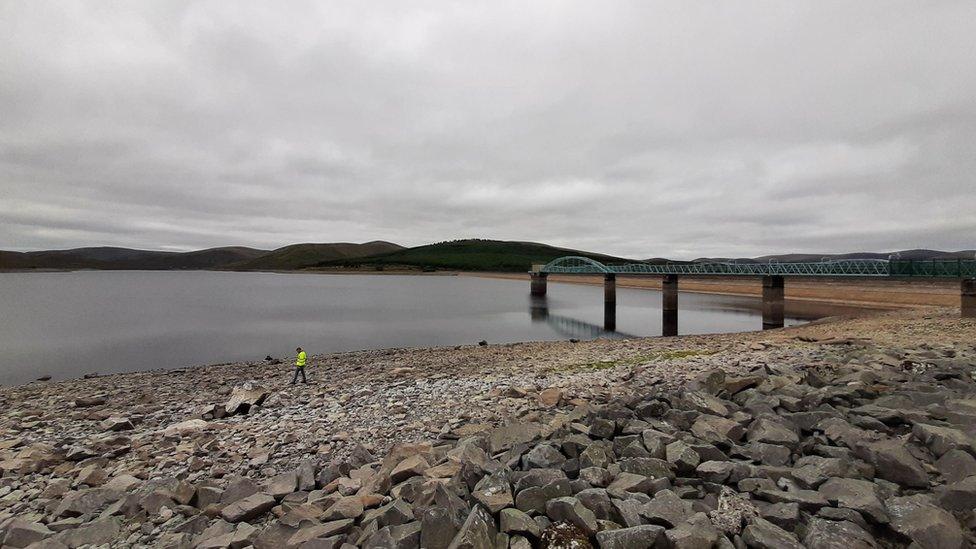'Unusual' autumn warning over water supplies
- Published

Scottish Water said across Scotland reservoirs, including Daer in South Lanarkshire, were at low levels
Some parts of Scotland need double the "normal" amount of autumn rainfall to return water reservoir levels to what they should be at this time of year.
Scottish Water said maintaining some public water supplies remained a "significant challenge" after the second driest summer in 160 years.
It said it was "unusual" for it to ask customers in autumn to take "simple steps" to conserve water.
Parts of the Highlands, north-east and south have had the driest conditions.
Water is of "moderate scarcity" in much of south-west Scotland and also in the Tweed area, Caithness and the River Ythan's catchment in Aberdeenshire, according to the Scottish Environment Protection Agency (Sepa).
It said in these areas river levels were low and groundwater levels were continuing to fall, with some places "approaching very low levels for this time of year".
Sepa said other areas were at "alert" level, and Scottish Water warned reservoir levels were low widely across Scotland..
Kes Juskowiak, of Scottish Water, said customers might assume preserving water was no longer an issue following recent rainfall, but that householders were still being urged not to leave taps running and to use dishwaters and other household appliances efficiently.
He said: "This is an unusual call in the autumn, but we are experiencing exceptional circumstances due to a significant rainfall deficit.
"Hopefully, autumn will bring some respite, but we need heavy and prolonged rainfall to get reservoir levels back up towards normal levels for this time of year."

Scottish Water said heavy prolonged rainfall was needed to return reservoir levels to normal
Advice has also been issued to farmers and golf clubs on taking care on how much water is taken from burns for irrigating land and watering golf courses.
David Harley, of Sepa, said there were concerns about water levels beyond this autumn.
He said: "What we are seeing now is the strange phenomena of short-term wet weather against a backdrop of longer term prolonged dry spells, which not only causes immediate challenges, but also concerns for the medium term and into 2022."
Related topics
- Published30 August 2021

- Published2 August 2021

- Published20 July 2021

- Published2 July 2021
